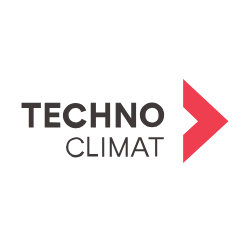
MAPAQ — Prime-Vert — Component 2
At a glance
- Maximum amount : 100,000 $
- Up to 90% of project cost
- Open Date : March 16, 2018
- Closing date : February 1, 2023
- Agriculture, forestry, fishing and hunting
- Quebec
- Non-profit
- Public or Parapublic institution
- For-profit business
- Social economy enterprise
- All revenue ranges
- All organization sizes
- Rural or Northern Residents
- Environment
- Economic, Social and Community Development
- Rural / Remote communities
- Business owners / entrepreneurs
- All structures
- Regional
Overview
The Prime-Vert 2018-2023 grant offers financial assistance up to 90% of eligible expenses, with a maximum funding amount of $100,000 per project, aiming to address prioritized environmental issues through collective agroenvironmental projects. Eligible activities include the implementation of sustainable agricultural practices to improve soil health, water management, and biodiversity, among others, in accordance with the region's action plan.
Activities funded
This grant supports projects aimed at addressing collective environmental issues prioritized by a region in Quebec. Eligible projects focus on implementing agroenvironmental practices and exploratory trials to resolve specific environmental challenges.
- Projects that are part of the regional action plan and aimed at resolving prioritized environmental problems.
- Collective participation projects involving agricultural companies to adopt agroenvironmental practices, including indicators and targets for reducing pesticide use, improving soil health, managing fertilizers, optimizing water management, and enhancing biodiversity.
- Projects involving a minimum of five participating companies that aim to tackle recognized agroenvironmental issues affecting water or air quality, soil health, biodiversity, or human health.
- Exploratory trials testing new agroenvironmental practices with a potential for medium-term applicability across numerous Quebec agricultural enterprises.
- Other collective projects aimed at solving targeted agroenvironmental problems affecting water, air, human health, soil health, biodiversity, or related climate change issues.
Eligibility
Eligibility for this grant is determined by specific requirements related to the applicant's profile and proposed activities.
- The applicant must be a consultant, a legally constituted and recognized agricultural producers' organization, a parapublic or private organization, or a non-profit organization.
- The applicant must act as the principal project leader for the entire duration of the project's implementation.
- The applicant must not derive financial gains or advantages from the grouping of purchases or the sale of agricultural inputs or goods and services in the agricultural sector, other than advisory services.
Who is eligible?
The grant targets projects that address prioritized environmental issues in specific regions, and are evaluated based on several specific criteria to ensure alignment with regional action plans and effectiveness.
- Importance of the environmental problem, alignment with the environmental issue presented in the regional action plan, and collective reach (20 points).
- Quality of the approach or methodology (30 points).
- Expected results and anticipated impacts (20 points).
- Experience and expertise of the project team (15 points).
- Feasibility, realism, project cost, and funding (15 points).
Who is not eligible
This grant primarily targets organizations involved in agro-environmental projects and excludes those not fitting this profile or deriving financial gains outside advisory services in agriculture. Here is a list of some specific restrictions.
- Organizations that benefit financially from the group purchase or sale of agricultural inputs or goods and services outside advisory services.
- Organizations whose operations are primarily outside the scope of agro-environmental advisory work.
Eligible expenses
The grant covers specific expenses directly associated with the implementation and realization of agro-environmental projects.
- Labor costs related to the project.
- Fees for consulting and expert services.
- Travel expenses directly tied to the project, following the limits set by the Conseil du trésor.
- Rental costs for land, buildings, machinery, or equipment.
- Cost of materials, tools, inputs, or services rented or purchased for the project.
- Costs related to communication, advertising, and information dissemination.
- Administrative fees not exceeding 15% of the total eligible expenses listed above.
- Additional costs for implementing INSPQ-recommended health guidelines for gatherings, such as sanitary protection equipment and cleaning products.
Selection criteria
The evaluation and selection of projects for this grant are based on specific criteria, each with allocated point scores, to ensure alignment with the grant's objectives.
- Importance of the environmental problem, alignment of the project with the environmental issue identified in the regional action plan (PAAR), and collective scope (20 points).
- Quality of the approach or methodology (30 points).
- Expected results and anticipated impacts (20 points).
- Experience and expertise of the project team (15 points).
- Feasibility, realism, and cost of the project, including financing (15 points).
How to apply
Submission of the financial aid application
- Submission of the Financial Assistance Application Form.
- Submission of the Financing Plan.
- Submission of the Work Plan.
- Transmission of other optional documents.
- Sending of all required documents to the Ministry of Agriculture, Fisheries and Food of Quebec (MAPAQ).
Project Implementation
- Submit each publication and each result transfer product for prior approval by the Ministry.
- Submit progress report(s) using the template provided by MAPAQ.
- Provide the statement of expenses using the MAPAQ template.
Submission of deliverables following the completion of the project
- Submission of the final report in accordance with the required template.
- Complete and submit the summary sheet.
- Submit the final expenditure statement using the MAPAQ template.
- Provide all required supporting documents regarding expenses.
- Send a copy of each publication or result transfer product.
- Submit any other deliverables planned according to the project.
- Wait for the approval and disbursement of financial assistance from the Ministry after receipt of the deliverables.
Additional information
Here are additional relevant details for this grant:
- Financial aid is provided under specific modalities detailed in the administrative letter agreed upon by the applicant and the Ministry.
- Disbursement of funds involves an initial payment and subsequent payments based on deliverables, with a final payment upon full project completion and approval of all deliverables.
- Prior written authorization from the Ministry is required for any cost overruns compared to the initial estimate, supported by detailed justifications.
- All purchases and services should preferably be sourced from recognized suppliers in Quebec, but exemptions can be requested for justified cases.
- All reports and communication materials related to the project must receive prior acceptance by the Ministry before their public release.
Frequently Asked Questions about the MAPAQ — Prime-Vert — Component 2 Program
What is the MAPAQ — Prime-Vert — Component 2?
How much funding can be received?
What is the deadline to apply?
Who is eligible for the MAPAQ — Prime-Vert — Component 2 program?
What expenses are eligible under MAPAQ — Prime-Vert — Component 2?
Who can I contact for more information about the MAPAQ — Prime-Vert — Component 2?
Where is the MAPAQ — Prime-Vert — Component 2 available?
More programs like this

Support for biofood exports - individual projects

ÉcoPerformance — Recommissioning of building mechanical systems

Financing to respond to the offensive of new tariffs and for initiatives for resilient and exporting companies (FRONTIERE)

Program to support the development of agriculture and agri-food in the regions

Efficient Solutions Program — Agricultural Component

PADAAR — Measure 4021 – Promotion of regional products

Support program for the development of reserved designations and promotional terms — Component 1

AgroPerformance – Stream 1 : Support for the agricultural sector in adopting agritechnologies

Innovative Projects Program
